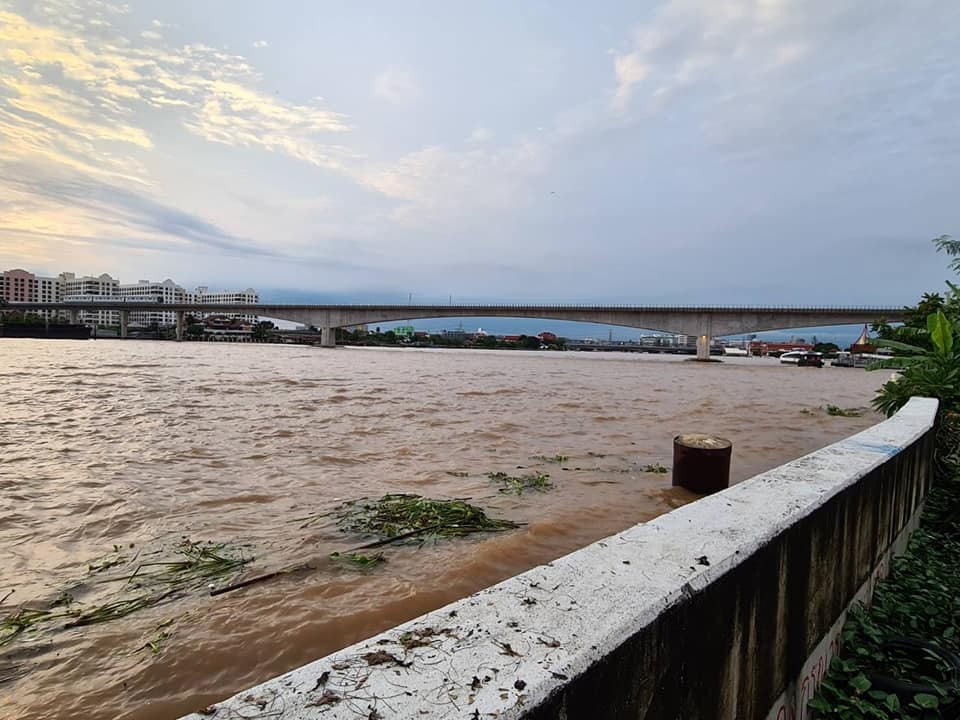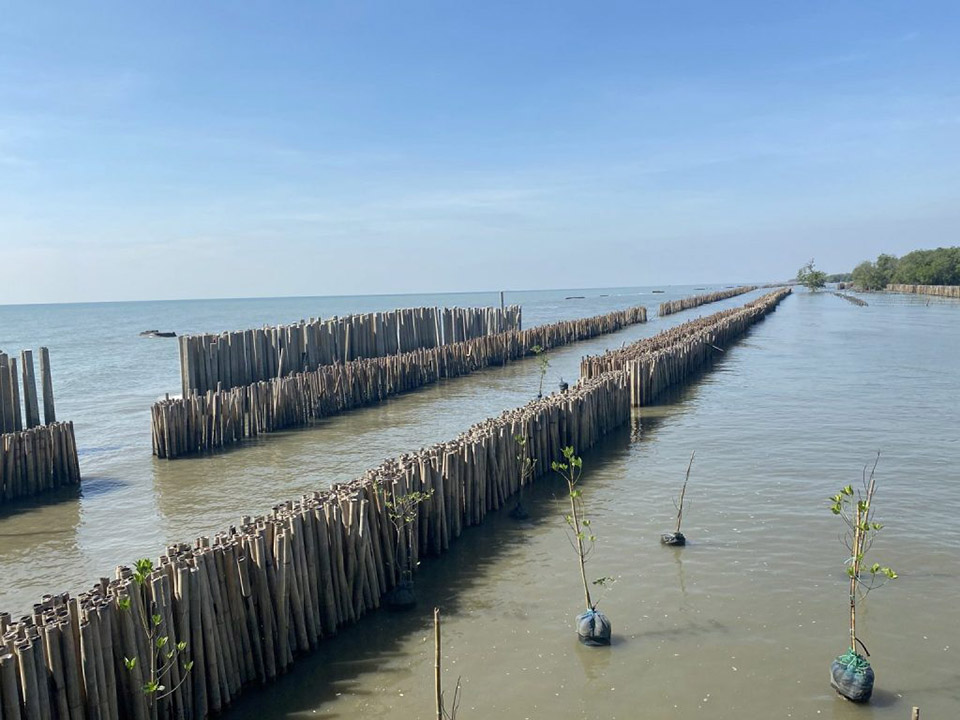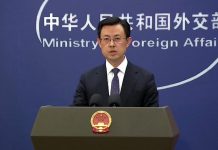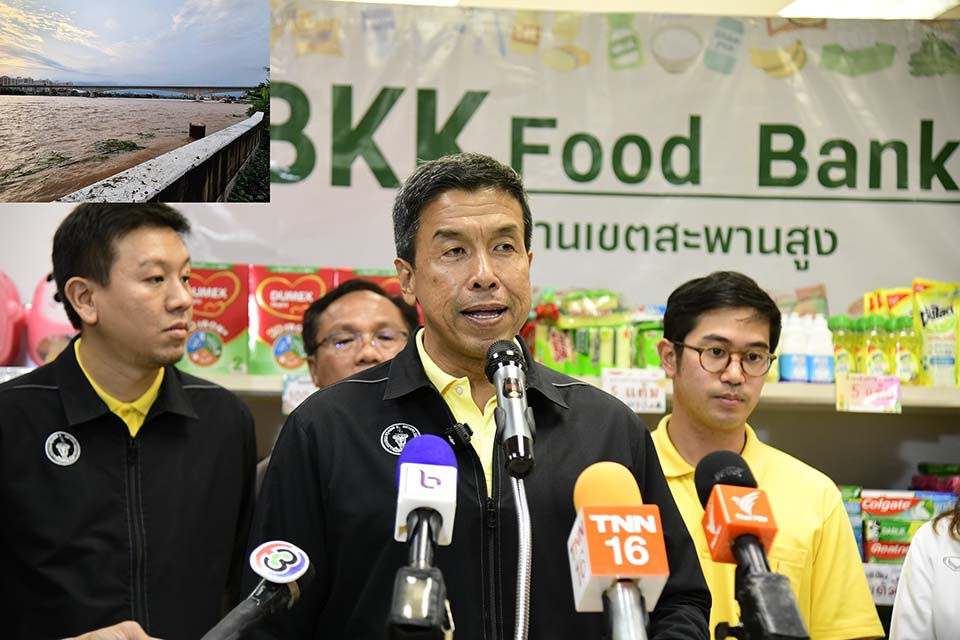
BANGKOK, Thailand – Governor Chadchart Sittipunt has addressed concerns over the potential impact of northern water on the capital. He confirmed that, for now, there are no reports of northern water affecting Bangkok, Sep 9. However, the city has taken precautionary measures, including placing sandbags in flood-prone areas and gaps along flood barriers. The Bangkok Metropolitan Administration (BMA) has prepared over 2 million sandbags and encourages residents to request additional protection in specific areas via their local district offices.
Governor Chadchart highlighted that the immediate concern is the possibility of heavy rainfall in the coming weeks. To prepare, the BMA has been draining water from the city’s canals and has ensured that water pumps and drainage systems are operational 24/7. While some residents may notice an odor from the drained canals, this is due to water being reduced to lower levels, exposing the muddy canal beds.
Another significant issue raised was the threat of seawater intrusion due to rising sea levels. Bangkok is indeed a low-lying area, as demonstrated by the Phra Khanong floodgate, which helps maintain the city’s water levels. The governor emphasized that while Bangkok has successfully managed seawater surges through its drainage systems, long-term solutions must be considered if sea levels continue to rise, affecting the Chao Phraya River. One proposal is the construction of a large-scale flood barrier similar to the Thames Barrier in London, but this would require national-level cooperation as it impacts multiple provinces along the river, including Chachoengsao, Samut Sakhon, Samut Songkhram, and Nonthaburi.
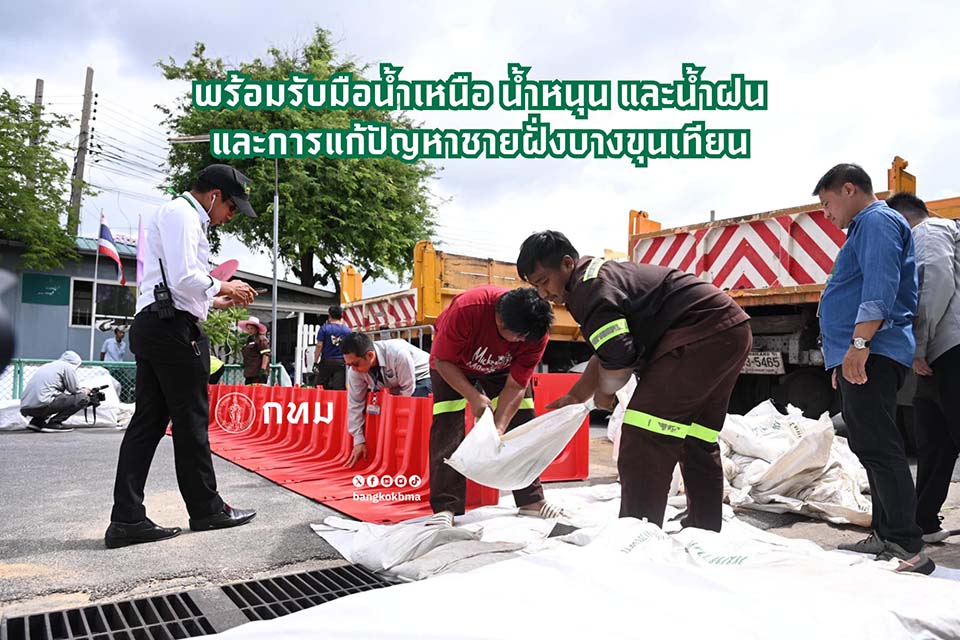
As for the issue of coastal erosion in the Bang Khun Thian district, the governor clarified that this problem is distinct from rising sea levels. The coastal erosion, which has caused over one kilometer of land loss, is due to the area’s location along the Gulf of Thailand. To address this, the BMA has proposed a sustainable solution by constructing a seawall to prevent further erosion at Bang Khun Thian Beach. The project, which has already secured funding, is currently awaiting government approval due to the need for permits to build within mangrove forest areas. Once completed, the seawall will protect the coast from further erosion.
Looking ahead, the BMA may consider elevating roads along the coastline, such as the old Sukhumvit Road and Bang Khun Thian Coastal Road, to act as flood barriers against future seawater rises.
